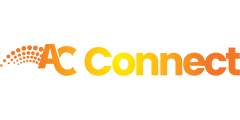Whether it’s reaching new amputees with critical recovery information, fighting for fair insurance laws or providing daily tips to make living with limb loss easier, the work of the Amputee Coalition is impacting lives every day.
Health Disparities
Emerging leader in providing meaningful programs to disparity populations with a focus on limb loss issues like our work with Minot State University for Native Americans living with limb loss, and our Spanish translation of vital resources like Primer Paso, a Spanish-language version of First Step, 277 limb loss resource fact sheets and the Spanish language version of our website, which receives nearly 500,000 page views annually.
Limb Loss Awareness Month
Leading nationwide public health effort to raise awareness about living with limb loss and about preventable limb loss by naming April National Limb Loss Awareness Month and implementing public relations campaigns which have achieved a letter from the President of the United States recognizing the month, secured 35 gubernatorial proclamations, distributed half a million consumer education prevention literature around the nation and garnered more than 50 million media impressions.
Strategic Communications
Leveraging technology and social media reach more amputees and their families, including the more than 65,000 constituents in our database with an on average addition of 700 new constituents each month, 33,000+ contacts on Facebook weekly, 400,000 unique visitors to our website annually, and a circulation of 145,000 for our national magazine, inMotion.
Fair Insurance
Fighting for revisions to state and federal insurance laws to fairly cover prosthetic devices and at the federal level and in the Affordable Care Act (ACA) with success in passing revisions providing insurance coverage in 20 states affecting an estimated 300,000 amputees and millions of Americans at risk for amputation in future years. Federal impact is pending the implementation of the ACA.
Limb Loss Task Force
In 2010, the Amputee Coalition convened the first Limb Loss Task Force Summit with the concept of improving amputee care and reducing limb loss in America. The first Summit resulted in the creation of a roadmap for both efforts. The second Summit held in 2012 built on the roadmap with an action plan to create a demonstration project aimed at proving the impact of a limb loss prevention algorithm in use in the VA healthcare system which has reduced amputations by as much as 30%. This effort is currently underway.
Medicaid/Medicare:
Leading policy efforts with state legislatures and health departments to educate decision makers on the importance of fair access to coverage of prosthetic devices in Medicaid programs making positive impacts in Arizona, California, Colorado, Connecticut, Minnesota, Nevada, Oregon, and Washington—affecting approximately more than 260,000 amputees in those states.
Travel accessibility:
Monitoring TSA security screening policies and procedures to ensure screening is not a significant barrier to travel, inconsiderate of people with limb loss or causes significant anxiety with successes in ensuring every checkpoint has a stable seating and standing area, eliminating use of the CastScope system due to significant concerns about exposure to radiation (being phased out nationwide) and working with TSA to establish more consistency in personnel training.
Recovery & Readjustment:
Leading national organization providing amputee peer visitor certification for visitors and trainers. Amputee Coalition certified peer visitors are the only peer visitors allowed to participate in the Department of Defense (DOD) and Veteran’s Administration (VA) amputee care programs.
Healthy Living
Holding nation’s premier educational programs promoting healthy living, physical activity and well-being, including a national conference dedicated to enhancing the quality of life for people with limb loss (PWLL) & their families and impacting more than 4,000 lives since 2007, an annual youth camp touching 100 lives each year and local education events in communities across the country.
Resource Center
Impacting more than 400,000 lives annually through online resources and distributed educational materials to amputees and their families.
Prevention
Including “limb loss prevention” in our mission developing an action plan, including a prevention resource page on our website, Sidestep, a guide to preventing and managing diabetes and its complications, a national foot care education series in collaboration with the Institute for Preventive Foot Health, an online risk assessment tool, and distribution of 450,000 Fact Sheets on limb loss prevention.
Supporting Veterans and Active Duty Service Members & their Families
Bolstering civilian and Veteran amputee care continuums by providing training and technical support to the Department of Veteran’s Affairs Amputee System of Care including, implementation of our Amputee Resilience Programs throughout the VA healthcare system and in 15 cities across the country, impacting more than 50,000 persons living with limb loss.
Integrating the Amputee Coalition Peer Visitor Program into Walter Reed Army Medical Center, the Center for the Intrepid at Brook Army Medical Center in San Antonio, and the Naval Medical Center in San Diego for returning warfighters with limb loss. Also developed the first model resource manual, Military In Step, for the Department of Defense targeting recovery and readjustment for returning warfighters with limb loss assisted in developing the Care of the Combat Amputee, a part of the Textbooks of Military Medicine series.
Emergency Preparedness
Bolstering national response to the earthquake disaster in Haiti by providing translated materials about wound care after limb loss and several other topics for on-the-ground distribution in Haiti by healthcare providers and for use in radio PSAs in Haiti.
Developing materials for amputees about surviving emergencies including When Disaster Strikes: A pocket survival guide for preparing for emergencies, 6,500 Fact sheets and resources on emergency preparedness and 9 articles on emergency preparedness in inMotion.


